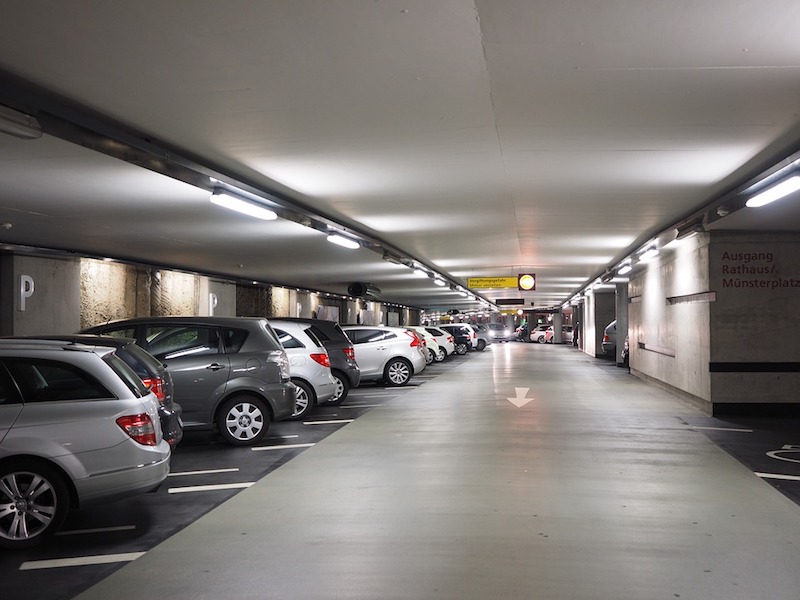More cities are loosening parking requirements for new developments, but there is no single formula for reducing parking that will work for every community.
Often, the first step is to regulate street parking for residents facing reduced in-building parking, according to representatives from Walker Consultants. Parking pricing and time restrictions make existing parking space more efficient and ensure that on-street parking spaces are available for visitors and customers.
Another effective strategy is to employ a shared parking model by activating unused office or apartment parking at times of the day when the spaces are typically empty. This cost-effective approach increases the capacity of each parking space. This also opens more land for other uses and reduces overall development costs.
Instituting paid parking via meters can fund transportation projects such as bike lanes that can reduce reliance on cars. Although some cities have used these policies to eliminate parking requirements on some new developments, most communities and developers will want to maintain some parking requirements for now, given that most Americans still rely upon cars for transportation.
Related Stories
| Jun 14, 2012
AGC, other business groups oppose hiring rules for disabled
Business groups have asked the U.S. Department of Labor to reconsider a proposed hiring quota aimed at federal contractors pertaining to people with disabilities.
| Jun 5, 2012
HP Labs aims for net-zero energy data centers
Building sustainable data centers is one of the goals of HP Labs, and it believes technology, combined with the right building techniques, could result in the construction of energy-efficient data centers.
| Jun 5, 2012
USGBC delays LEED 2012; renames it LEED v4
In response to concerns by LEED users, the U.S. Green Building Council (USGBC) announced that it will delay the ballot on LEED 2012 until June 1, 2013.
| Jun 5, 2012
Baltimore officials vow to block $1.8 billion urban renewal project
Baltimore officials want to block a $1.8 billion urban renewal project until more neighborhood residents and minority contractors are hired and displaced residents can benefit from the revitalization.
| Jun 5, 2012
OSHA launches campaign to warn of heat dangers in outdoor work
The Occupational Safety and Health Administration has begun a campaign to warn outdoor workers about the dangers of heat exposure.
| Jun 5, 2012
AGC’s Safety and Health Conference focuses on regulations, legislation
More than 150 industry professionals and other attendees will participate in the Associated General Contractors of America’s (AGC’s) safety and health conference July 11-13 in Washington, D.C.
| Jun 1, 2012
New BD+C University Course on Insulated Metal Panels available
By completing this course, you earn 1.0 HSW/SD AIA Learning Units.
| May 31, 2012
Proposed change in Michigan’s building code would hurt innovation, say critics
Legislation pending before the Michigan Senate would change the law that calls for building codes to be updated every three years to require an update only every six years.














